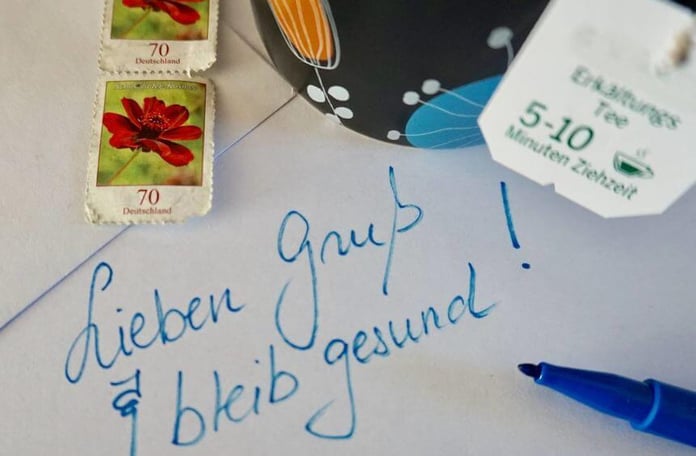
Mannheim – It is not uncommon these days that a personal message or a business email ends with the words “stay healthy” or “stay healthy”. An expression that quickly established itself as completely normal in the wake of the Corona crisis and is now also used as a routine formula. Routine formulas are expressions that can consist of one or more words and are often used in everyday life. They often have a pragmatic bond that distinguishes them.
Command form as an emphasis
He is a literary and media scientist at the University of Mannheim. “The status is clarified by a corresponding greeting – especially between different hierarchies,” he says. In these times, being healthy is no longer a matter of course. That is why the new greeting “Stay healthy!” Is formed in the imperative, that is, the form of the command. Just like all other precautions related to the coronavirus: “Don’t go out! Stay at home! Keep your distance! ”Under normal circumstances, the exclamation mark is disappearing more and more in everyday life.
“In the past, you learned at school that the exclamation mark belongs to the imperative,” says Horisch. “It was not a statement, but an appellative expression. That’s why I find it astonishing that the exclamation mark reappears in the healthy formulation. ”There is also a clear tendency to shorten it. So from “best regards” today a “best regards”. As in the present situation, a clear change to the information can be observed.
Nevertheless, routine formulas are culturally bound and socially conventionalized. At the same time, however, the opposite tendency arises with health. This makes it clear that at least greetings are not a rigid concept. “It is remarkable that routine formulas adapt to the circumstances,” says the Germanist. The elbow salute, which has been widespread since the advent of the coronavirus, has now been given a written equivalent.
The healthy greeting gives the impression that the author only feels sympathy for the recipient. However, it also had to be read between the lines: “He wishes the health reciprocal, that means reciprocally.” That would translate roughly with the reminder: just stay healthy so that you don’t infect anyone and thereby reduce the likelihood of me could infect me. “That is why this wording is currently very common,” says Horisch.
All in the same boat
“When this situation with the coronavirus is over, the wording will disappear again because it then appears to be nonsensical.” “And because this unusual time also allows for unusual things, a politician is not resented when he suddenly does the people, by saying, stay healthy and stay at home, you all have this important responsibility. ”The salutation in the form of you creates trust in times of crisis. “Otherwise, distance is required, but here you want a mental approach, a thought that you have in common”, says Horisch – according to the motto: We are all in the same boat.










